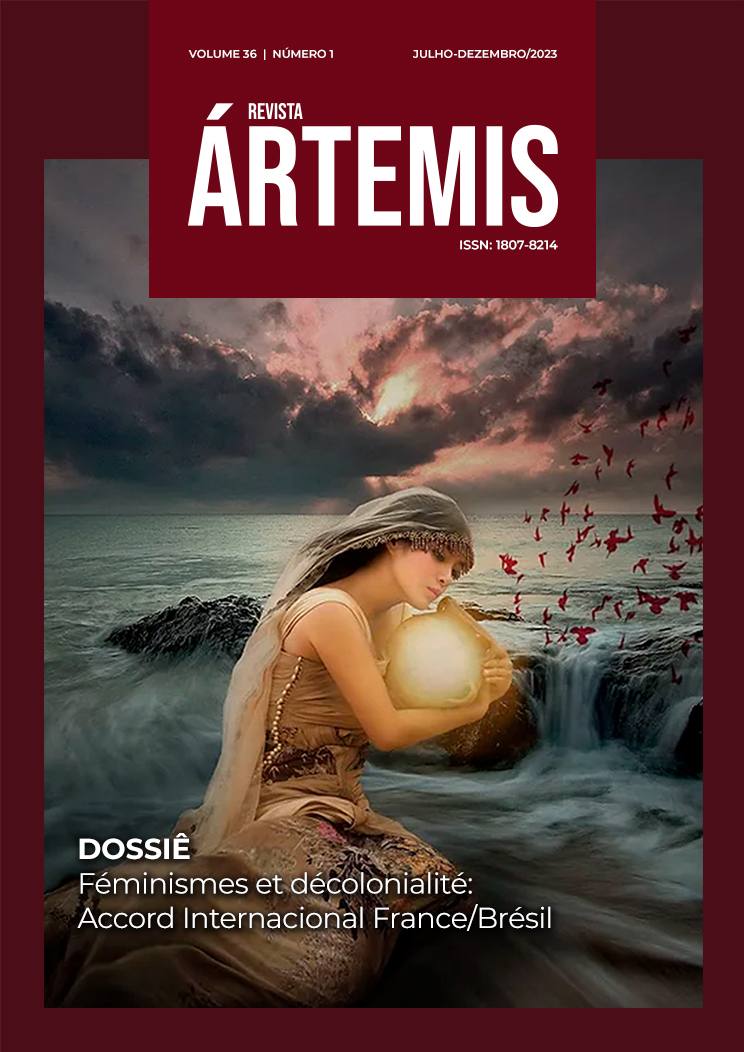Gendered subalternity, decolonial afrofeminism and memory
A reading of Saeta the poems (2011) by Yolanda Arroyo Pizzaro, Dear Idjeawele or a manifesto for feminist education (2017) by Chimamanda Ngozi Adichie, La Dette (2022) by Sylvie Akiguet Bakong
DOI:
https://doi.org/10.22478/ufpb.1807-8214.2023v36n1.68947Keywords:
Subalternité, Décolonailité, Afroféminisme, Arroyo, Adichie, AkiguetAbstract
From the seminar on «Feminism and Decoloniality. Brazil, Latina America, and Africa» both organized by «Groupe de Recherche et d’Etudes des Noirs en l’Amérique Latine’’ (University of Perpignan) and Grupo Feminismos e Decoloniade (Universitdade Federal sa Paraibas), coordinated by Victorien Lavou and Luciana Calado Deplagne. On the one hand, «gendered sulternity» is based on a dialectic that questions subjectivity, submission, and other forms of discrimination against women, especially in terms of races. On the other hand, the decolonial feminist reflection founded on the concept of Coloniality of power (Annibal Quijano) calls for various theorital approaches from great Latino-American feminists, among which the Brazilian critics Sueli Carneiro, Leila Gonzalez, and Maria Lugones. An Afro-feminist perspective also comes with Awa Thiam, Mariama Bâ, and Fatou Sow. All this said, this paper analyzes the discourse produced by a new generation of feminist writers in an Afro-Caribbean angle with Saeta The poems from Yolanda Arroyo, and in an Afro-Sub-Saharan perspective with Dear Ijjaewele or A Manifest for a Feminist Éducation From the nigerian writers Chimamanda Ngozi Adichie. This article finally examines in the same trend the Gabonese writer and psychologist Sylvie Akiguet-Bakong’s La Dette (The Debt). From which narrative process, or how do these female writers with different trajectoiries write on the experience of women who are victims of multiple domination?







